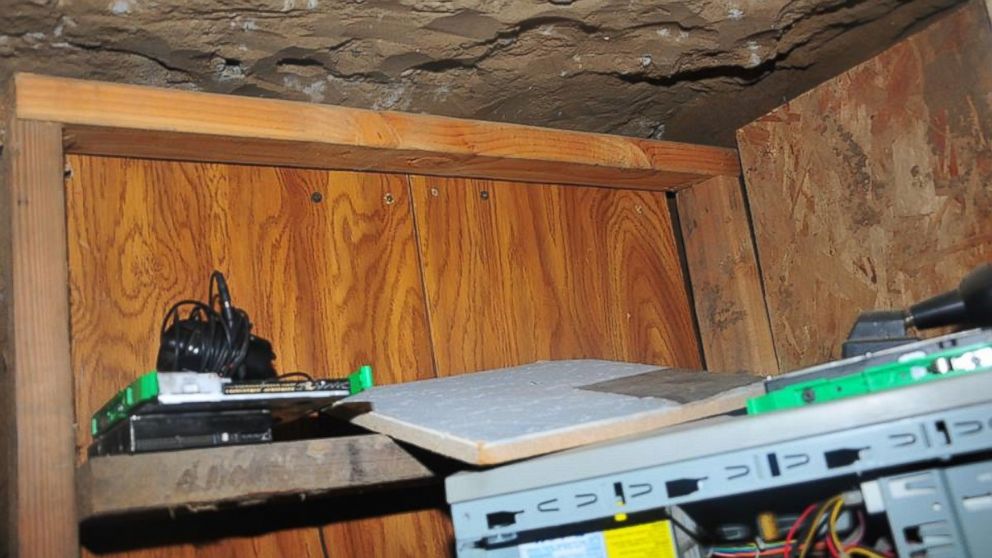SAN DIEGO (CN) – The 'claw machine,' in which kids try to drop a claw onto a stuffed animal, is an illegal gambling operation and should be shut down, a woman claims in a class action against Denny's.
Ashley Cheesbrough sued Denny's in Superior Court.
Cheesbrough claims that Denny's 'engaged in unlawful business acts to earn higher profits by exposing its patrons to illegal gambling devices and providing them with opportunities to gamble. Denny's conduct violates public policies tethered to laws that are designed to protect the public against the deleterious effects of gambling.'
She claims that Denny's encourages illegal gambling by offering 'games of chance' in the arcade sections of its restaurants.
'Within these arcade sections are games that require the player to insert money (usually quarters) into the machine and offer the player a chance to win stuffed dolls, toys, or other prizes. Such machines include, but are not limited to, claw machines. However, these machines are illegal gambling devices that require little or no skill and are predominantly games of chance. The Bureau of Gambling Control has declared that machines including but not limited to claw machines are ‘common types of illegal devices' under California Penal Code sections 330a, 330b, and 330.1,' the complaint states.
A claw machine player uses a joystick to drop a claw one time onto a stuffed animal or another prize.
Courthouse News conducted in-house interviews to determine whether anyone ever wins an animal at the claw game. One highly placed source claimed he never saw anyone win. Another source, however, said the trick was to watch others lose first, and see which animals are loosely packed. When the losers leave, the trick is to go after the loosely packed animal.
Cheesbrough states: 'If the claw fails to retrieve a prize, the player loses. If the claw grips a prize, it lifts the prize up and ascends to the top of the machine and rattles, often knocking the prize out of the claw and the player loses. On occasion, the prize does not get rattled out of the claw, and the claw moves to the corner of the machine and releases its content. The prize is dropped into the opening and dispensed into a hatch for collection.'
Cheesbrough claims the claw machines are illegal gambling devices because they are games of chance, not games of skill.
'Unlike many other arcade games (e.g. Pac-Man, Skeeball, pinball, etc.) which require hand-eye coordination, concentration, and physical skill, the outcome of operation of claw machines is based entirely or predominantly on chance or hazard. In other words, the player has no ability to control the outcome. The Bureau of Gaming Control clarified that a lawful device is one that is predominantly a game of skill ‘on which what can be won is limited to additional chances or free plays. If, however, the player has paid to play and can win something other than additional plays, such as food, toys or other prizes, the machines does [sic] not qualify for the amusement device exception and is an illegal gambling device.'
Cheesbrough claims that even if claw machines were games of skill, the fact that users play to win physical prizes makes them illegal.
By having claw machines in its restaurants, Cheesbrough says, Denny's is contributing to the problem of gambling addiction in kids and adults.
'Gambling addiction is a serious and devastating problem for many adults and a growing problem among children. The Royal College of Psychiatrists concluded that ‘all gaming machines, regardless of the size of the stake or the amount of prize money, are unsuitable for children and young people.' The Royal College of Psychiatrists strongly recommends that they should cease to be made legally available to them,' the complaint states.
Cheesbrough says she personally lost money trying to win prizes out of claw machines at Denny's, and never would have played them had she 'known that the machine was an illegal gambling device.'
The complaint does not say how much money she lost playing the game.
But she claims that she and other class members will continue to lose money and Denny's will 'retain proceeds of its ill-gotten gains' unless the court orders Denny's to remove the claw machines and other games of chance from its restaurants.
She seeks a preliminary and permanent injunction, disgorgement and restitution for unfair competition and business law violations.
Prestige casino financing. She is represented by Gene J. Stonebarger of Folsom and counsel James R. Patterson of San Diego.

Illegal Gambling Machines In California Near



Illegal Gambling Machines In California Near
- California has many options for those who are interested in legal gambling, although sports gambling is not currently available in the state. While the US Supreme Court lifted restrictions on sports gambling in 2018 and many states followed with legalization, California has not yet followed suit.
- Investigators with the department's crime reduction team located eight gambling machines, illegal drugs and over $30,000 in cash while searching the room inside of Scenic Professional offices at 614 Scenic Dr., police said. Swipe to see more photos from the bust. Illegal gambling bust 1 (credit: Modesto Police Department).
- The San Joaquin County Sheriff's Office has shut down an illegal gambling business in Stockton, officials said Friday. The business was found inside an apartment in the 2300 block of Waterloo Road.
Illegal Gambling Machines In California Now
SACRAMENTO — A one-time Berkeley resident pleaded guilty in federal court Friday to running an illegal gambling business and conspiracy to launder money, authorities said. Slot machines at. In addition to the arrests and money recovered, several illegal firearms were taken off the streets and over 200 illegal gambling machines were seized from the locations. Bon jovi poker games.

